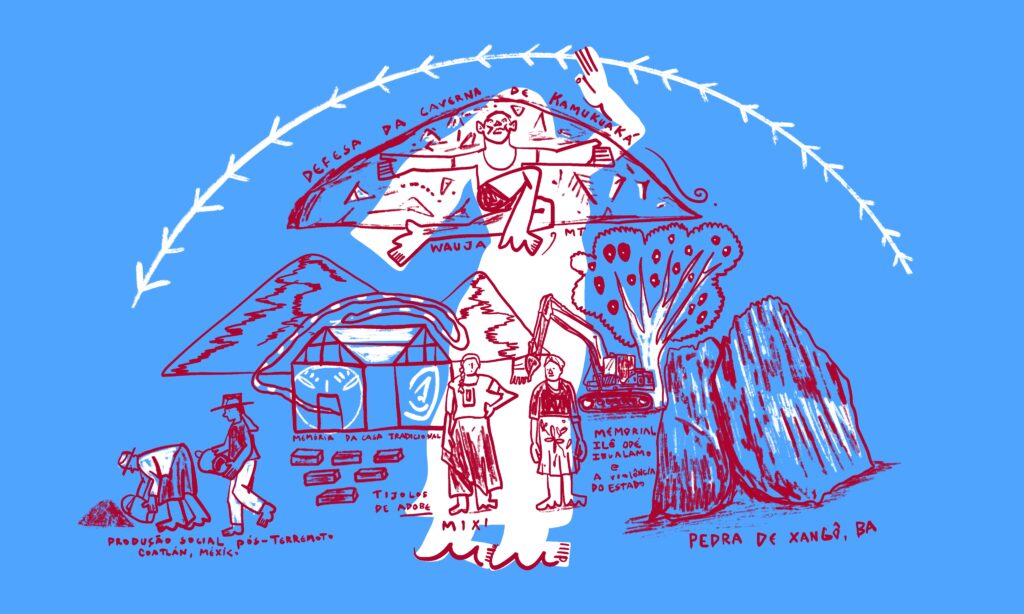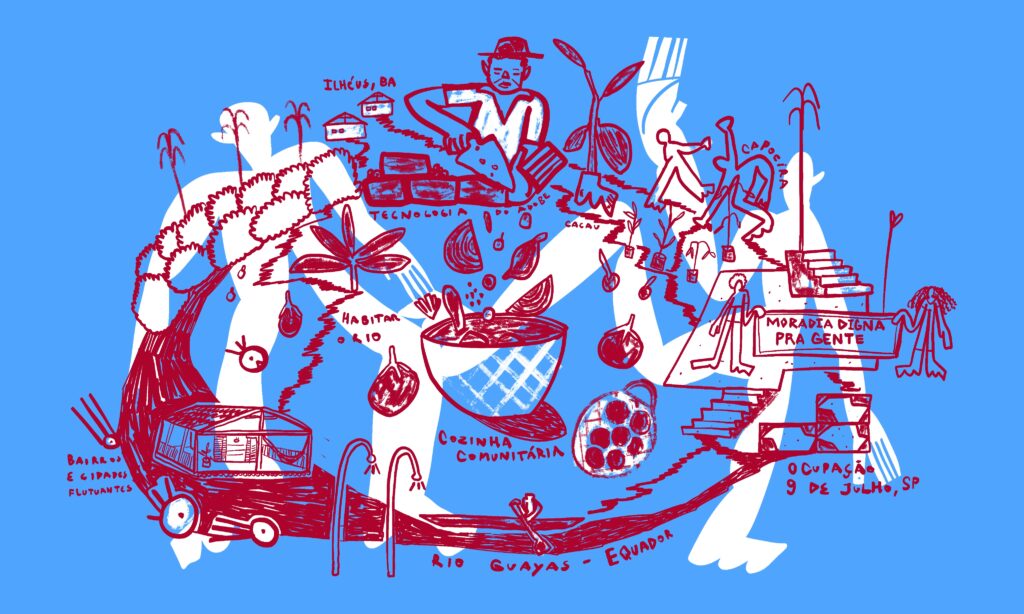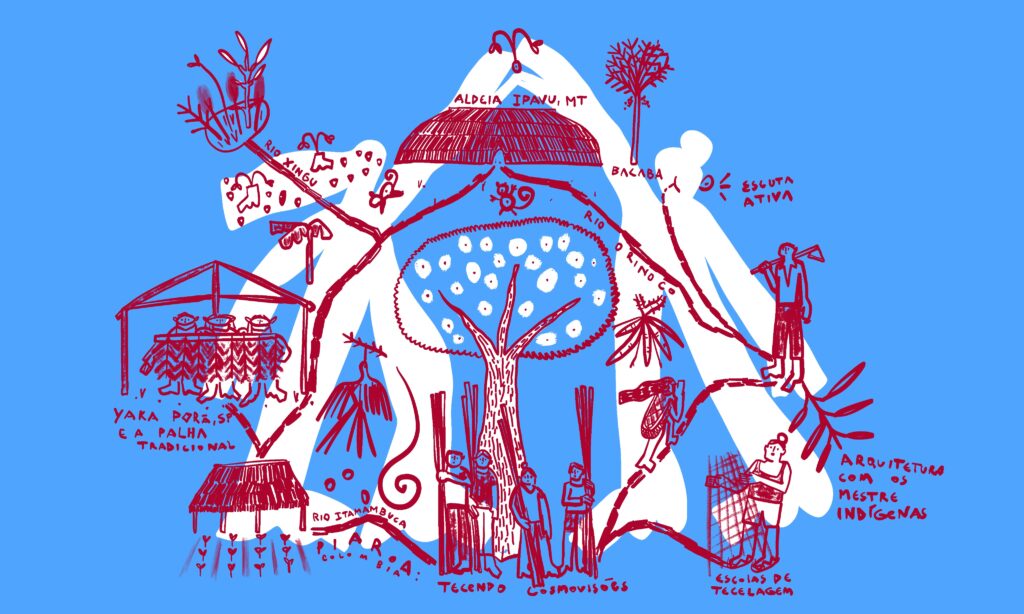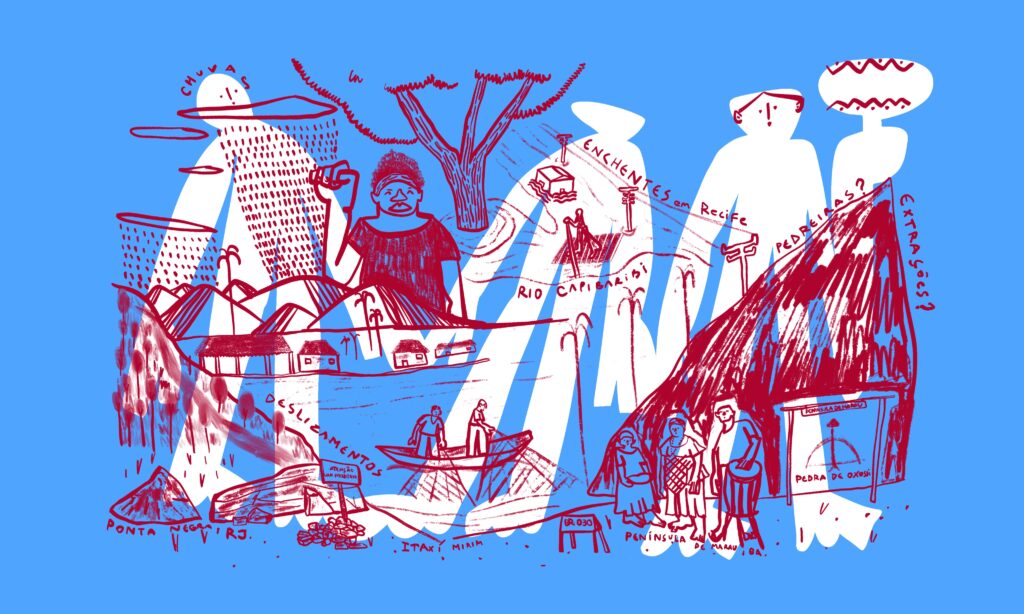The Envolvimentos (Involvements) fostered an open dialogue with social movements and diverse territories, converging on the exhibition of the 14th São Paulo International Architecture Biennial, which runs from September 18 to October 19 at OCA in Ibirapuera Park. Architects and leaders from villages, terreiros, riverside communities, and peripheral neighborhoods jointly explored architectures for inhabiting a heated world in debates that deepened the exhibition's central ideas.
Participants involved in projects across diverse territories and contexts addressing issues such as coexistence with water and floods, heritage preservation, forest protection and sustainable management, urban agriculture, mechanisms for enabling low-impact lifestyles, and the recognition of nature as a subject of rights were invited to participate in the dialogue. These are ways of inhabiting, building, perceiving, participating in, and transforming the territory.
4th Involvement – Acting post-disaster
The fourth gathering examines the preservation of memory and cultural heritage in post-disaster contexts, while honoring spiritual dimensions of recovery. It critically reflects on how human interventions both generate catastrophes and intensify systemic inequalities.
Guests:
Comunal
Cidade do México, Mexico
Founded by Mariana Ordóñez Grajales and Jesica Amescua Carrera, Comunal envisions architecture as a collaborative social process – living, open, and constantly evolving – with residents at the heart of decision-making. In communities affected by earthquakes, hurricanes, and floods, the studio has facilitated and guided social reconstruction processes, rebuilding not only homes but also local productive systems and community ties.
Ewesh Yawalapiti Waura
Associação Terra Indígena Xingu
Território Indígena do Xingu, MT, Brazil
Lawyer graduated from UFMT (Federal University of Mato Grosso) and Executive Director of the Associação Terra Indígena Xingu (ATIX). ATIX works to defend indigenous rights, protect territories, and promote the traditional cultures of the Xingu region. Ewésh, alongside the Waujá people, has been actively involved in protecting Kamukuwaká Cave—a sacred site for the Upper Xingu peoples and a heritage site recognized by Iphan (Institute of National Historical and Artistic Heritage). The cave suffered vandalism, and a replica was later installed within the Ulupuwene Village.
Luis Octavio de Faria e Silva
Frente Ilê Odé Ibualamo
Sao Paulo, SP, Brazil
Assistant Professor of Architecture and Urbanism at São Judas Tadeu University and researcher at Instituto Anima, with a PhD and Master’s degree from FAUUSP (University of São Paulo’s Faculty of Architecture and Urbanism). His work focuses on urbanism, housing, and ecological architecture. In 2022, he publicly denounced the demolition of the Ilê Asé Odé Ibualamo Candomblé terreiro in Carapicuíba (SP), carried out without community consultation as part of the Cadaval Stream canalization project.
Image authorship:
Image 1 – Gustavo Caboco – Download the image here
Image 2 – Guanabara Studio – Download the image here
INVOLVEMENTS
TECHNICAL SHEET
Curatorship and mediation: Marcella Arruda and Marina Frúgoli
Production: Julia Delmondes
Interns: Matheus de Sousa and Yasmin Guerra
Graphic Records: Guanabara Studio and Gustavo Caboco






